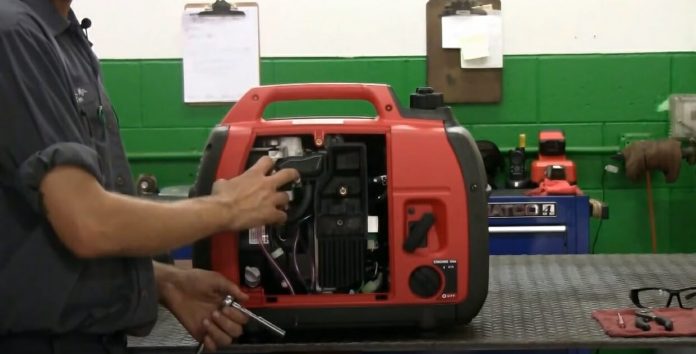The generator in your home or business provides power when you can’t rely on the electrical grid, such as during a storm or even just because you’re out of town for a few days. However, to keep your generator running smoothly and help it last as long as possible, you need to follow these five tips to keep your generator running smoothly.
-
Hire an Expert to Service Your Generator Regularly
It is always a good idea to service your generator regularly. A qualified technician will take care of any maintenance issues and general troubleshooting, saving you time and money in the long run. They’ll also be able to do routine things like replacing spark plugs and cleaning fuel filters while at it. And if something goes wrong with your generator while it’s running, they’ll know how to fix it immediately. Your technician may also advise using a fuel stabilizer that keeps gas fresh for up to six months or more! Adding a fuel stabilizer is also crucial when storing your generator during winter. With expert generator repairs, you can keep your machine running smoothly for years to come and save time and money. If you have an electric start generator, don’t forget that a battery needs recharging once in a while too. Check the owner’s manual for instructions on how often to charge it.
-
Ensure the Battery is In Good Condition
If you want your generator to be operational and running smoothly, it is essential to maintain the battery. Check the electrolyte levels regularly and top off as needed. If using a wet cell battery, then be sure to clean the terminals regularly with a wire brush or steel wool. If corrosion builds up, use an abrasive paste such as sandpaper, steel wool, and water. Be sure to read all instructions before applying any chemical. Ensure your wet cell battery remains fully charged during periods when not in use, and store it in a cool place out of direct sunlight if possible. You should also know how long the battery should last under normal conditions before replacing it; this will vary depending on your battery type.
-
Avoid Using Contaminated Fuel
Using contaminated fuel on your generator can have disastrous effects. It can cause overheating, power outages, and even more costly repairs. You may also experience high fuel consumption, inefficiency, and engine wear. To avoid these issues, use only quality gasoline free of dirt or water from the filler cap up to the top of the filler neck. Make sure you know the type of fuel that you need for your specific model, and never use any other kind. If you are using a portable generator, ensure it is well-ventilated and always keep an eye on the fumes that come out of the tank during refueling. Finally, never overfill a gas tank because this can cause gas to leak out of the vent cap during transportation or storage. Clean and quality fuel will go a long way in helping your generator run smoothly. Make sure you use the correct fuel type by consulting your owner’s manual and storing fuel away from direct sunlight, so it doesn’t become too hot.
-
Do Not Overuse Your Generator
A generator has a standard run-time of about six hours, which is usually enough for people using it in their homes. You should never operate your generator above its capacity and if you need more power than your generator can provide, contact a professional. If you’re using your generator frequently, don’t overuse it. If possible, you can use a timer so that it turns off automatically after running for the right amount of time. Another option is to take breaks every few hours of running the generator with 5 minutes of idling before resuming. That way, the engine doesn’t get too hot and will have time to cool down when it’s not running.
-
Keep Your Generator Clean
Don’t forget that your generator needs periodic maintenance cleaning, just like the rest of your tools. It requires a weekly rinse-down to keep contaminants from clogging up the blades, causing them to overheat and die prematurely. The grime from the exhaust can also be a problem for your air filter. So, you can give it a good scrubbing down every once in a while. If you’re having trouble starting your machine after taking these steps, it’s time to call in an expert.
Conclusion
Whether you have a power outage or emergency power supply, it is crucial to maintain your generator regularly to ensure reliability. Keeping the oil level up and maintaining the air filter are two of the most important things you can do for your generator. And if you don’t need your generator for a while, store it in an area where it will be out of harm’s way from dampness and snow. Contacting an engineer in generator maintenance and service before an issue arises could save you money on costly repairs later. Many companies offer this service, so shop for the best rates. Check those who provide maintenance plans and services such as warranty plans, repairs, replacement parts, etc.



